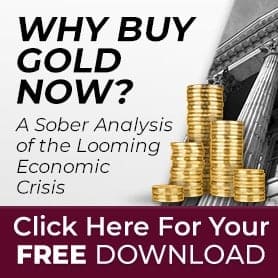- We are just about a week away from the Federal Reserve’s first rate increase in about 10 years
- Everybody believes the stage is set for liftoff based on the most recent better than expected Non-Farms Payroll report
- The idea is that the only thing preventing the Fed from liftoff would have been a horrific jobs number
- In fact the markets estimated 190,000 jobs added and we got 211,000
- We did beat estimates, and in fact they revised last month’s number up to 298,000
- The unemployment rate held steady at 5%
- This was not a strong report, any way you look at it
- The labor force participation rate: 62.5% is just one-tenth of a percent from the lowest level since the mid-1970’s
- That is still going in the wrong direction
- We had the biggest surge in involuntary part-time workers – 300,000 new workers really wanted full time employment – the biggest jump in more than 3 years
- Janet Yellen has consistently stated until recently that before moving up interest rates she wanted to see improvement in the job market, specifically in participation and full-time vs part-time jobs
- Thus far that has not happened
- So why does everybody believe that the Fed is about to raise interest rates regardless of its stated criteria?
- I believed that the Fed had no intention of raising rates and I believe they did not, except one thing has changed: they have backed themselves into a corner
- They have floated some trial balloons as a litmus test
- One change of rhetoric occurred during Yellen’s press conference last week as she switched from waiting for the data to improve to confidence that it will improve some time in the next year
- Another change is the idea that a rate hike would trigger a series of hikes with the goal of normalizing interest rates
- That’s why they were calling it liftoff
- Now, since the markets tanked after September did not deliver a liftoff, the Fed Chair has changed her tune – liftoff does not matter, the trajectory does
- She may be saying, don’t worry, if we raise rates, there won’t be another one any time soon, meaning it would be the end of the tightening cycle
- The beginning of tightening during the taper, and if we get a rate hike it will end that process
- If this is just a trivial rate hike, why raise rates at all, considering the fact that the data is still bad?
- Manufacturing is already in a recession
- The ISM number that came out last week hit a 6-year low and even the service sector ISM missed estimates
- Retail sales and consumer confidence have been disappointing, indicating the end of this weak recovery which is actually a bubble
- The Fed now feels their credibility is on the line – it is a symbolic gesture to show confidence in the economy
- If they were truly confident, they would not assure everybody that the rate hikes are not likely to continue
- In 2016 we will be in a recession unless the Fed does something to delay its onset, and it may be too late for them to put out the fire they have already lit
- Why does Janet Yellen not say she believes the economy is still weak?
- A window into Yellen’s perception is an interview that Ben Bernanke gave on Freakonomics yesterday. It’s entertaining, but it doesn’t tell you anything new about Ben Bernanke
- The most important revelation occurred about halfway through the interview when the interviewer played some clips of Bernanke on television in 2005-2006.
- During those clips, Bernanke was talking about the great shape the economy was in, minimizing the housing and mortgage market troubles
- The interviewer asked how he felt listening to himself now, knowing how wrong he was on the economy then
- The first words out of his mouth were that he admitted he was speaking as a member of the Administration
- After that, he went back and said the economy was good in 2005 – 2006, so I wasn’t wrong, because it was good, right up until the end
- That’s like a guy jumping off the Empire State Building saying,”Everything was great until I hit the pavement!”
- What Bernanke does not understand is that the economy was a disaster in ’05 and ’06 because it was a bubble
- If we had a good economy, it would not have ended in a financial crisis and to this day, Bernanke still does not understand that
- Janet Yellen doesn’t understand it either. She thinks this is a good economy, but it will have the same ending because it is a bubble
- If Bernanke believed he was a member of the Bush administration, how can we believe Yellen does not believe she is a member of the Obama administration?
- As a loyal Obama appointee, why should she tell the truth?
- Why does everybody assume Yellen is above the Administration’s political rhetoric?
- She will ignore all data indicating the economy is not in good shape, even if it means raising interest rates a quarter point, just as a gesture of confidence in an economy she really does not have confidence in
- The “data dependent” line was just a stall tactic, because the data today, is the wort is has ever been, other than the unemployment rate, which is a lagging indicator
- Unemployment is always low at the beginning of a recession
- Leading indicators are pointing to a recession
- During Janet Yellen’s testimony before Congress, she was asked about a Citigroup study pegging a the odds of a recession in 2016 at 65%
- She was asked if she agrees with the study, and, of course she could not say yes
- The followup question was, “What if there is a recession? What tools do you have to combat it?”
- Janet Yellen said, “We have all the tools we’ve always had. We’ll just lower interest rates again.
- Then she said she was also prepared to go back to quantitative easing because it worked so well the last time.
- Wouldn’t a recession in 2016 so soon after a rate hike prove that quantitative easing and zero percent interest rates didn’t work?
- It was simply a prop to keep the economy from imploding and the minute they remove the props, down it went
- What the Fed really should do if the U.S. economy is back in recession in 2016 is admit they made a mistake and go back to the drawing board
- All of the self-congratulations we’re hearing are predicated on a real recovery that no longer needs zero percent interest rates
- This would prove, what I have said all along, that we are in a situation from which there is no exit
- Meanwhile, the markets continue to believe the Fed, in spite of the revealing insights in the Ben Bernanke interview
- That’s why you’re seeing weakness in emerging markets, weakness commodity prices, weakness in oil
- One thing we’re not seeing is weakness in gold – the price of gold rose about $40 from its Thursday low to its Friday close in the face of the stronger than expected jobs numbers
- This suggest that the theory of “Buy the rumor, sell the fact” is what will happen in gold, and I think the same thing will happen with the dollar
- The fact is not going to jibe with the rumor, which means we’ll have an even bigger reaction than we normally would
- If it turns out the rate hike rumor is false… what might lead the Fed to not raise rates? If this trial balloon ends up like the Hindenburg, because we still have a little over a week to go
- The Dow has been very choppy; we have had some big down days following this relief rally
- The Fed wants to sit back and gauge the reaction to a diminished flight path
- If the Dow is in the vicinity of its highs, then I think the Fed will have the courage to pull the trigger
- But if we’re tanking again I think the Fed will not raise rates and will continue to pretend that they are data dependent
- In speaking about data, I wanted to mention that the same day they released the better than expected employment data, we released worse than expected trade data
- The trade deficits not only came out wider than expected, they upwardly revised the prior month
- Exports were at their lowest level in 3 years
- If the U.S. economy really is improving, you would see the results in trade
- Earlier in the recovery, there was a promise that manufacturing was going to lead the recovery
- President Obama promised a “Manufacturing Renaissance”
- What he delivered was the Manufacturing Dark Ages
- Our manufacturing jobs are going away – jobs people have don’t support them
- Consumer credit is still growing, but retail sales are not.
- Consumers are using credit to pay for necessities – they are not shopping
- Yes, there is still credit growth in school loans and the auto sector, but they are bubbles
- Just like Bernanke did not say anything about the housing bubble, Yellen is not saying anything about these bubbles
- This is not going to end better, all the data points to a weaker economy
- If the Fed doesn’t raise rates in December there will not be any rate hikes at all
- If they do raise rates in December it’s the only time it will happen
- A “One and done” is not the beginning of a tightening cycle
- It is not just interest rates – it is the shrinking of the balance sheets
- Janet Yellen promised to shrink the balance sheet back down to pre-crisis levels by the end of the decade
- Yet, her plan to manage a recession should it come, is to go back to more QE, which will grow the balance sheet
- Janet Yellen is just speaking as a member of the Obama Administration and she wants to talk this economy up
- She does not want Obama to meet the same fate as Bush
- If the Republicans come to office, all the Democrats who have cushy jobs will still have jobs if Hillary Clinton is elected
- If the Republicans win, all those jobs go to different people, so the Administration always wants to keep their team on the field
- The economy will be a referendum on Obama’s presidency
- The question is: when will the markets figure this out? Maybe gold has already figured it out
- It hit a new low and then had a substantial rally; gold stocks never confirmed the new low in gold
- Gold stocks recently hit 2-year highs, so you see a positive divergence there
- We did have a big reversal last week in the euro when Draghi “disappointed” the markets by not increasing their QE. I recorded a long podcast on that. There is much significance to that event and there is a chance the euro has bottomed
- There are a lot of shorts on the euro, just like there are a lot of shorts on gold. I think a lot of people are going to be disappointed
- I believe the Fed will lead the charge for easy money and the markets are not prepared for that at all
Podcast: Download










